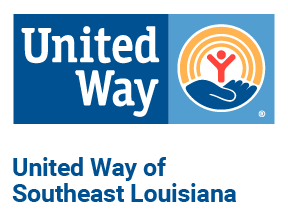“A Conversation About Our Children” event at governor’s mansion highlights ways to improve opportunity for Louisiana children, recognizes successes of state’s foster care system
NEW ORLEANS – Child welfare advocates and policymakers gathered last month to discuss a harsh reality – children in Louisiana experience some of the nation’s worst outcomes in health, education, economic well-being, and family and community.
The “A Conversation About Our Children” event – hosted by United Way of Southeast Louisiana (UWSELA), the Louisiana Institute for Children in Families and the Louisiana Foster Care and Adoption Caucus – took a closer look at the barriers children face in Louisiana, specifically around education and family, and highlighted potential solutions to ensuring all Louisiana children have equitable opportunities to succeed.

Guest speaker Dr. Geoffrey Nagle, president and CEO of the Erikson Institute and a leading voice in improving the lives of young children, underscored the importance of investing in the first 1,100 days of a child’s life.
“Know that early experience, and not just early education…is truly the smoking gun for both educational success and long-term health,” said Dr. Nagle. “We know from Nobel Prize-winning economists that the greatest return on a public investment is the dollars that are spent earliest in the lifespan.”
UWSELA presented to attendees its 2019 Legislative Agenda, which includes support for early childhood education (ECE). The latest United Way ALICE Report for Louisiana shows that child care represents a family’s greatest expense. The high cost of quality child care remains out of reach for many families – potentially limiting a child’s early development and their parents’ future earning potential.
Funding for the Louisiana Child Care Assistance Program has been dramatically cut since 2008, with over 20,000 fewer children served by the program today.
“There is substantial bipartisan support for increasing access to quality care for young children,” said Kim Sport, public policy chair for UWSELA. “We are committed to working with our partners to advocate for additional funding for early care and education programs – to ensure all children have access to high-quality early education programs that meet their needs, prepare them for success in school, and allow parents or guardians to continue their training and work.”
The long-term consequences of poor educational development and achievement are compounded for thousands of Louisiana children in the foster care system who do not have a permanent home.
“Our commitment since 2016 has been to help ensure every child in foster care has a quality parenting, no matter where they live or who cares for them,” said DCFS Secretary Marketa Garner Walters. “It’s what every child deserves. We owe it to them – we owe it to ourselves – to invest in this promise and make it a priority.”
In 2018, DCFS celebrated another record-breaking year of adoptions from foster care families with an 18 percent growth compared to the previous year. Louisiana set a record for finalized adoptions between Oct. 1, 2017, and Sept. 30, 2018 with 912 children finding loving, permanent homes.
The Dave Thomas Foundation for Adoption recognized at the event the governor and first lady Donna Edwards, Representative and Speaker Pro Tempore Walt Leger III and Senator Ronnie Johns for their efforts to increase the number of adoptions of children waiting in Louisiana’s foster care system. The Foundation is the only public nonprofit charity in the United States that is focused exclusively on foster care adoption.
“The Dave Thomas Foundation for Adoption is honored to partner with the leadership in Louisiana, including Governor and First Lady Edwards, the Foster Care & Adoption Caucus and the Department of Children & Family Services, in assuring that every child in the state has a safe and loving family,” said Rita Soronen, president and CEO of the Dave Thomas Foundation for Adoption. “Louisiana is setting a high bar for other states in indefatigably and passionately committing to the resources and evidence-based programs needed to effectively serve our most vulnerable children and youth.”
“If your heart doesn’t lead you to knowing how important early childhood is, the science will,” says Dean Madeleine Landrieu, Dean of Loyola University New Orleans College of Law and co-founder of the Louisiana Institute for Children in Families. “Dr Nagle’s research is compelling. The first 1,100 days of a child’s life really matter. We are honored to work with United Way on policies that recognize this truth, and are grateful to the governor and first lady, Secretary Walters and the members of the Foster Care and Adoption Caucus for embracing the reforms necessary to improve outcomes for the children and families of our state.”
###
About United Way of Southeast Louisiana
For more than 90 years, United Way of Southeast Louisiana (UWSELA) has been a leader and trusted partner in improving lives and making a lasting difference. We fight to eradicate poverty by preparing people for quality jobs, growing incomes, and affording better health and education opportunities throughout Jefferson, Orleans, Plaquemines, St. Bernard, St. Tammany, Tangipahoa, and Washington parishes. We have a bold vision of equitable communities where all individuals are healthy, educated, and financially stable – and we have a plan. United Way of Southeast Louisiana’s Blueprint for Prosperity guides all strategic investments in programs, initiatives, collaborations, volunteerism, and advocacy aimed at tackling poverty. For more information, please visit UnitedWaySELA.org. Find us on social: @UnitedWaySELA.
Join United Way. GIVE. ADVOCATE. VOLUNTEER. CONNECT.
About the Louisiana Institute for Children in Families
The Louisiana Institute for Children in Families (LICF) is a nonprofit, nonpartisan organization dedicated to raising awareness about the needs of children without families, and removing policy barriers that prevent children from knowing the love and support of a "forever family."
Through three distinct programs, we connect child welfare service providers, policy makers and political & community leaders with those who are directly impacted by child welfare policy, all in an effort to improve outcomes for families.
